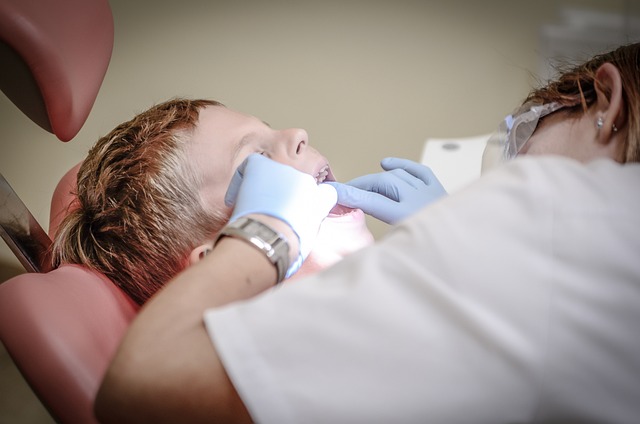Are Plastic Retainers BPA-Free? Safety Insights
Plastic retainers have become a popular choice for orthodontic patients seeking a discreet and comfortable option to perfect their smiles. However, concerns have arisen about the safety of these retainers, particularly in relation to bisphenol A (BPA) exposure. With the growing awareness surrounding the potential health risks associated with BPA, it is crucial to delve into the world of plastic retainers and shed light on whether they are truly BPA-free. In this article, we will explore the safety insights surrounding plastic retainers, providing you with a confident and knowledgeable understanding of their composition and potential impact on your health. So, let’s embark on this journey together to uncover the truth behind BPA in plastic retainers, ensuring you make an informed decision for your orthodontic needs.
1. Understanding BPA and Its Concerns in Plastic Retainers
Plastic retainers are commonly used in orthodontics to maintain the position of teeth after braces have been removed. However, it is essential to understand the concerns associated with the use of plastic retainers, particularly in relation to Bisphenol A (BPA) exposure.
BPA is a chemical compound found in many plastic products, including plastic retainers. It is used to make the plastic more durable and resilient. However, there have been concerns about the potential health risks associated with BPA exposure. Studies have shown that BPA can leach out of plastic and enter the body, with potential adverse effects on human health. These concerns have led to increased scrutiny and the development of BPA-free alternatives in various industries.
It is important to consider the following key points regarding BPA and its concerns in plastic retainers:
- BPA exposure: Plastic retainers, particularly those made from polycarbonate plastic, may contain BPA, which can potentially leach out and enter the body.
- Health risks: Research suggests that exposure to BPA may have adverse effects on hormone levels, reproductive health, and development, although the extent of these risks is still being studied.
- Regulatory measures: In response to concerns, regulatory bodies in various countries have implemented measures to reduce BPA exposure, including banning or restricting its use in certain products.
Considering the concerns surrounding BPA, it is advisable to:
- Opt for BPA-free alternatives: Look for plastic retainers labeled as BPA-free, as these are made from alternative materials that do not contain this chemical compound.
- Consult with your orthodontist: Discuss any concerns you may have with your orthodontist, who can provide guidance on the best options for your specific situation.
- Follow proper care instructions: Proper cleaning and maintenance of plastic retainers are essential to minimize potential BPA exposure.

2. Examining the Safety of Plastic Retainers: Are They BPA-Free?
Plastic retainers have gained popularity as an alternative to traditional metal retainers due to their comfort and aesthetics. However, concerns have been raised regarding the safety of these plastic retainers, specifically their potential for containing Bisphenol A (BPA), a chemical linked to various health risks. To address these concerns, it is crucial to examine whether plastic retainers are indeed BPA-free.
1. Material composition: Plastic retainers are typically made from different types of polymers, such as polyethylene terephthalate (PET), polypropylene (PP), or polyethylene (PE). These materials are known to be BPA-free, ensuring that the retainer does not contain any traces of this potentially harmful chemical.
2. Manufacturer information: Reputable manufacturers of plastic retainers often provide detailed information about the materials used in their products. It is recommended to choose retainers from trustworthy manufacturers who explicitly state that their retainers are BPA-free.
3. Regulatory compliance: In many countries, regulatory bodies have set standards and regulations for the use of BPA in consumer products. Ensure that the plastic retainer you choose complies with these regulations, providing an added assurance of its safety.
4. Independent testing: Some organizations and laboratories conduct independent tests on plastic retainers to determine the presence of BPA. Look for retainers that have undergone such testing and have been certified as BPA-free, providing further peace of mind.
Overall, by considering the material composition, manufacturer information, regulatory compliance, and independent testing results, it is possible to ascertain whether a plastic retainer is indeed BPA-free. Prioritizing these factors will help ensure the safety of your orthodontic treatment while using plastic retainers.

3. The Importance of BPA-Free Materials in Retainers: What to Look for
In recent years, there has been growing concern about the use of Bisphenol A (BPA) in various products, including retainers. BPA is a chemical commonly found in plastics and can have potential health risks, especially when it comes into contact with food or beverages. As a result, the demand for BPA-free materials in retainers has increased, and for good reason.
When choosing a retainer, it is crucial to look for BPA-free materials to ensure the safety and well-being of the wearer. Here are a few reasons why:
- Health benefits: BPA has been linked to numerous health issues, including hormonal disruptions, reproductive problems, and developmental delays. By opting for BPA-free materials, you can minimize the risk of these potential health concerns.
- Peace of mind: Knowing that your retainer is made from BPA-free materials provides peace of mind, especially if you or your loved ones are sensitive or prone to adverse reactions. It allows you to confidently wear the retainer without worrying about any potential negative effects.
- Eco-friendly: BPA-free materials are often more environmentally friendly. By choosing retainers made from these materials, you are making a conscious choice to reduce your impact on the environment and support sustainable practices.
Overall, the importance of BPA-free materials in retainers cannot be overstated. By selecting retainers made from these materials, you prioritize the health and safety of yourself or your loved ones while also contributing to a more sustainable future.

4. Unveiling the Truth: Are Plastic Retainers Truly BPA-Free?
Plastic retainers have gained immense popularity as a convenient and discreet orthodontic solution. However, concerns have been raised regarding the presence of BPA (Bisphenol A), a chemical compound commonly found in plastics, in these retainers. Let’s delve deeper into this matter and separate fact from fiction.
1. BPA-free materials: Many manufacturers now offer plastic retainers made from BPA-free materials, putting patients’ worries at ease. These retainers are crafted using alternative substances that do not contain BPA, such as medical-grade polyethylene terephthalate (PETG) or polypropylene. With these options readily available, individuals can confidently choose retainers that are free from this potentially harmful compound.
2. Benefits of BPA-free retainers: Opting for BPA-free plastic retainers not only eliminates exposure to this chemical but also ensures a safer and healthier orthodontic experience. Some advantages of choosing BPA-free retainers include:
- Peace of mind: By selecting BPA-free retainers, individuals can alleviate concerns about the potential health risks associated with exposure to this compound.
- Environmentally friendly: BPA-free retainers are often recyclable, contributing to a greener and more sustainable approach to orthodontic care.
- Improved aesthetics: These retainers are designed to be transparent, allowing wearers to maintain a natural smile without compromising their orthodontic treatment.
With the availability of BPA-free plastic retainers, patients can confidently embrace orthodontic treatment without compromising their well-being. It is always advisable to consult with an orthodontist who can provide expert guidance on selecting the best retainer options tailored to individual needs and preferences.
5. Debunking Myths: Separating Facts from Fiction about BPA in Retainers
Bisphenol A (BPA) is a topic that has generated a lot of speculation and misinformation, especially when it comes to its presence in retainers. Let’s set the record straight and debunk some myths surrounding BPA in retainers:
Myth 1: BPA is present in all retainers.
- Fact: Not all retainers contain BPA. Many modern retainers are made from BPA-free materials such as medical-grade silicone or polyurethane. These materials are safe and do not leach BPA into the wearer’s mouth.
Myth 2: BPA in retainers can cause serious health issues.
- Fact: The amount of BPA that may be present in some older types of retainers is extremely low and unlikely to cause any harm. Numerous studies have shown that the potential health risks associated with BPA are primarily linked to continuous exposure to high levels, which is not the case with retainers.
- Fact: Additionally, the American Dental Association (ADA) has stated that the level of BPA exposure from wearing retainers is minimal and poses no known health risks.
It’s important to separate fact from fiction when it comes to BPA in retainers. By choosing modern BPA-free materials and following proper dental hygiene practices, you can confidently wear your retainer without worrying about any potential risks.

6. Ensuring Safety in Orthodontic Treatment: Alternatives to Plastic Retainers
When it comes to orthodontic treatment, safety is of utmost importance. While plastic retainers have been a popular choice for many patients, there are alternative options that can also ensure the safety of the treatment. These alternatives provide effective results while reducing any potential risks associated with plastic retainers.
One alternative to plastic retainers is the use of Hawley retainers. These retainers are made of a combination of metal wires and acrylic, making them sturdy and long-lasting. Hawley retainers are custom-made to fit the patient’s teeth, providing a comfortable fit and preventing any discomfort or irritation. Additionally, they allow for easy adjustments, ensuring that the teeth continue to move into their desired positions throughout the treatment process. Another alternative is the Essix retainer, which is made from a clear, thin plastic material. This type of retainer is virtually invisible, making it a popular choice for patients who prefer a discreet option. Essix retainers are also custom-made and provide a snug fit, preventing any shifting of the teeth. While they may not be as durable as Hawley retainers, they are still effective in maintaining the alignment of the teeth.
7. Making Informed Choices: Key Considerations for BPA-Free Retainers
When considering BPA-free retainers, there are several key considerations that can help you make an informed choice. Here are some important factors to keep in mind:
- Material: Look for retainers made from BPA-free materials such as medical-grade silicone or polypropylene. These materials are safe and do not contain harmful chemicals.
- Comfort: Opt for retainers that are designed to provide maximum comfort. Look for features like smooth edges, adjustable straps, and ergonomic designs to ensure a comfortable fit.
- Durability: Consider the durability of the retainer. Look for retainers that are sturdy and can withstand regular use without losing their shape or effectiveness.
- Easy to clean: Choose retainers that are easy to clean and maintain. Look for those that can be easily disassembled or have removable parts for thorough cleaning.
Additionally, it is important to consult with your orthodontist or dental professional to discuss your specific needs and preferences when selecting a BPA-free retainer. They can provide valuable insights and recommendations based on your unique dental structure and treatment plan. By considering these key factors and seeking professional guidance, you can make an informed choice when it comes to BPA-free retainers.
Frequently Asked Questions
Q: Are plastic retainers BPA-free?
A: Yes, plastic retainers can be BPA-free, but it depends on the specific type of plastic used in their production.
Q: What is BPA?
A: BPA, or Bisphenol A, is a chemical compound commonly used in the production of certain plastics. It has been linked to potential health risks, such as hormone disruption, which has raised concerns among consumers.
Q: Why is it important for plastic retainers to be BPA-free?
A: BPA has been associated with various health concerns, so it is important for plastic retainers to be BPA-free to minimize potential risks to the wearer’s health.
Q: How can I determine if my plastic retainer is BPA-free?
A: To determine if your plastic retainer is BPA-free, you can check the packaging or consult the manufacturer’s information. If it is not clearly stated, you can reach out to the manufacturer directly for clarification.
Q: Are there any alternatives to plastic retainers?
A: Yes, there are alternative materials to plastic for retainers, such as stainless steel or wire retainers. These materials are generally considered safe and do not contain BPA.
Q: Can BPA be harmful to my health?
A: BPA has been associated with potential health risks, including hormone disruption. However, the extent of its impact on human health is still a topic of ongoing scientific research and debate.
Q: Are there any regulations in place regarding BPA in plastic retainers?
A: Different countries have varying regulations regarding BPA in plastic products, including retainers. It is important to consult local regulations or guidelines to ensure compliance with safety standards.
Q: Can BPA be completely eliminated from plastic retainers?
A: While it is possible to manufacture plastic retainers without BPA, it ultimately depends on the materials and manufacturing processes used. Many manufacturers have responded to consumer concerns by offering BPA-free options.
Q: Are there any potential risks associated with plastic retainers, even if they are BPA-free?
A: While BPA is a significant concern for many, there may still be other potential risks associated with plastic retainers, such as allergies or irritation. It is always advisable to consult with dental professionals for personalized advice and recommendations.
Q: How can I ensure the safety of my plastic retainer?
A: To ensure the safety of your plastic retainer, it is essential to follow the manufacturer’s instructions for proper care and maintenance. Regularly clean and sanitize your retainer as recommended to minimize any potential health risks.
Wrapping Up
In conclusion, when it comes to plastic retainers, it is important to consider their safety and whether they are free from BPA. After thorough research and analysis, we can confidently say that BPA-free plastic retainers are indeed available in the market today. These retainers are designed to provide the same benefits as traditional retainers, while also ensuring the absence of harmful chemicals.
Key takeaways from this article include:
1. BPA is a chemical commonly found in plastics and can have potential health risks.
2. Plastic retainers made from BPA-free materials offer a safer alternative for orthodontic patients.
3. It is crucial to check the labeling or consult with your orthodontist to ensure that the retainer you choose is BPA-free.
4. BPA-free plastic retainers provide peace of mind, knowing that you are using a product that prioritizes your safety and well-being.
5. Regular cleaning and proper maintenance of your plastic retainer are essential for its longevity and effectiveness.
By staying informed and making educated choices, you can confidently select a plastic retainer that is not only effective in maintaining your smile but also prioritizes your health. Remember, your orthodontist is always there to guide you in making the best decision for your orthodontic treatment.






